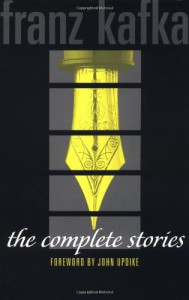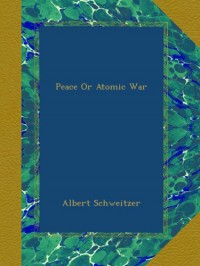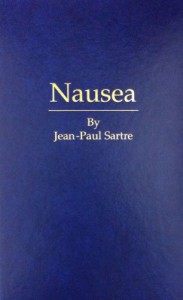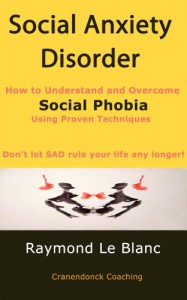
UPDATE 2/13/14: I have been thinking about Kafka and the way I reviewed this book a lot- his works definitely make you think- and have decided to change my rating. I want to say that Albert Camus' quote that the thing about Kafka is that he causes you to reread him is extremely true. As disappointed as I was by the writing of many of the stories, others, such as Metamorphosis, I really enjoyed, and even those I did not caused me to really think. I believe I have been bitten by the Kafka bug (Gregor Samsa?), as I can now say that this review will probably not be permanent, as I eventually would like to reread this collection of Kafka's works. But for now, I am upping the rating to three stars.
I came into reading Kafka with high hopes. I had heard many great things about his works from many different people. Sadly though, his works did not meet my expectations. I am disappointed. I really wanted to like Kafka's writings, but I really do not. Part of this is my fault. I came into this expecting something along the lines of Sartre's Nausea, which, being the first existentialist novel I had read, I really enjoyed; so I was hoping that Kafka would be similar. Although both Sartre and Kafka do express certain similar themes, particularly with their feelings of alienation and despair emanating through both their works, they express them in much different ways. While the themes in Sartre's work were obvious, and his stories realistic, Kafka's often unrealistic stories could be read over a dozen times and the interpretation of his themes still be vague or misunderstood. But, that appears to be some of the appeal of Kafka- his works are overflowing with metaphors, symbolism, and themes that one could spend a lifetime trying to interpret. Reading Kafka's stories would probably be easier and much more enjoyable if one had an understanding of his personal life; many of his works seem to be metaphors expressing his relation to his family or how he thinks of himself. Besides this, most of his stories are incomplete. Many of his complete ones are enjoyable and interesting, and even some of his incomplete ones; however, many of his incomplete stories are also fragmented and confused, often switching between plot elements throughout the story, greatly confusing the reader. In the end, I did enjoy some of Kafka. But, I really find Kafka the man more interesting than Kafka the writer. His personal life, and the views and experiences that influenced his writing, are more interesting than his writings themselves; and his writing is mainly interesting only to try and decode his personal thoughts on these matters. I will probably end up rereading this when I have more time- with a greater understanding of the themes behind his writing, I would probably enjoy his work much more. But until then, I can only say his work is alright; it is interesting, but not exceptional.

























